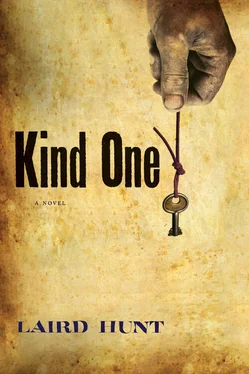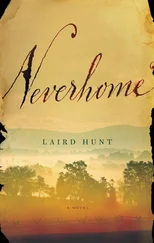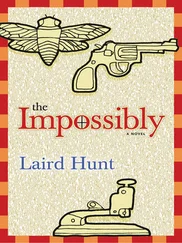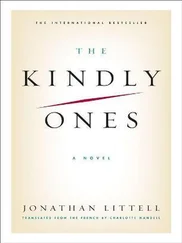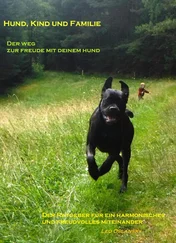The author would like to acknowledge the particular inspiration he derived from reading Incidents in the Life of a Slave Girl, Written by Herself , by Harriet A. Jacobs; The Known World (not limited to but in particular its eleventh page), by Edward P. Jones; The Palm-Wine Drinkard , by Amos Tutuola; and Marguerite Yourcenar’s “Reflections on the Composition” of Memoirs of Hadrian. He would also like to note that the long-germinating seed for this novel of revolt was planted in 1990 in a seminar he took with Professor Richard Blackett at Indiana University, which addressed, among other slavery-related subjects, the causes and consequences of the Haitian Revolution.
Crucial support in the writing of Kind One was received from the division of Arts, Humanities and Social Sciences at the University of Denver.
for Lorna, sister and friend
In the evening she would tell it. In the dusk light, when the candles were lit and the fire was low, she would clear her throat. When the windows were closed and the curtains drawn and the children tucked, she would set in to speak. When we had all gathered close, when our shoulders had touched, when we had taken her hands, when we had drawn in our breath. When we had shut tight our eyes, when we had thought of our days, the years of our suffering, our joy in the sunshine, that time by the water, cool drops on our foreheads, warm bread in our mouths. When we had all been spared, when our crops had come in, when the storm had stepped past, when we had said all our prayers. When the night stretched before us, she would open her tale.
OVERTURE (THE DEEP WELL). 1830
Sometime like apes that mow and chatter at me
And after bite me ,
I SET A MARKERone hundred paces from the stream, gathered my tools, and began to dig. The earth was soft at first, and I worked fast and had dug the hole past my waist by midday when my wife called on me to wash and come into the house. We ate salt beef and cold meal cakes and drank cloudy water from the stream. After dinner I stood a time over our daughter’s basket, picked her up when she started to cry, then went back out to my hole. I dug quickly until I hit a gathering of rocks that I fought for most of the afternoon. I had dug during the war and liked to dig but the rocks were wearisome, and when I came up out of the hole in the evening the pick and shovel had cut through the heavy calluses on my hands.
We ate more salt beef and more meal cakes but this time dipped them in honey. We spoke of the cloudy water, which came from the stream. It was good, but the water we would pull up from the well would be clear and always cool and delicious. Speaking of the water to come made me want to return to the hole straight after supper, but my wife told me that I must rest. So instead of returning to my picks and shovels, I went to look at the stock — three pigs, two goats, a cow — then came back to the house and played a few minutes with our daughter. She was learning to stand by pulling herself up on the chairs. I held her hands and helped her to her feet. I let her stand, teetering, by herself for a moment. She fell and rolled backwards onto her head but didn’t cry. When I held out my hands she stood again. My wife came after a time and picked her up, and I took off my boots and lay down on our bed.
In the morning, while my wife and our daughter were still sleeping, I went back to the hole and picked up my shovel. I had been on a digging detail in the latter months of the second war against the English and had found it easy work. I and the men I had worked with had dug trenches and ditches and wells much like this one. I had learned from these men how to lay a filter at the bottom of the well and how to shore its walls with brick so it would hold. Some of the men had sung while they worked, and I had liked to listen to them. I was not, myself, much for singing, but my wife could sing, and after she had woken and fed the baby she came and sat near the hole and sang as she mended a pair of shoes. I liked to hear my wife sing while I worked. She would stop for a time then start up again. She liked to sing to the baby when she brought her out to sit beside her and let her play with a rattle I had made from a gourd or pull up grass in the yard. There were bees buzzing around in the airs, and I liked to think of going out to search for honey. I had watched men who kept bees, and as I dug I liked to think of building hives to have in my own yard. I had seen children help tend the hives, and I liked to think of my own daughter someday helping me to tend bees when she was older.
The walls of the well-to-be grew higher around me and I went deeper into the earth. On the evening of the third day I built a mechanism to remove the dirt and rock. I was not as good at building mechanisms as I was at digging, but the windlass I contrived was strong enough. My wife offered to haul up the dirt I put into the bucket. At first I declined. I would fill the bucket then climb out of the hole to pull it up. But the bucket was not large and pulling it up would be much less work for my wife than climbing in and out would be for me. We spoke of it over our supper of fresh milk and corn cakes fried in bacon fat. My wife said she could do it and I said I didn’t like for her to have to. It was just the two of us with the baby, she said. Who else in the wide world was going to help me as the hole grew deeper? Someday we’ll have all the help we’ll need, I said. Someday isn’t today, she said. I thought of climbing in and out of the hole each time I had a bucket to pull up. I was going to hit water soon and would be wet each time. Our daughter had begun to cry, and by the time she had quieted I had nodded my head.
The next morning my wife brought the baby’s basket out into the yard, and each time I had a bucket filled she pulled it up. She sang as she did this work and I, in the shade of the hole, felt very happy. I was happy when I could hear the baby laughing or crying. Once my wife came and held the baby over the mouth of the hole so that she could see her father. The baby laughed but I could not see her face, only her curly-haired silhouette. I was standing in cool mud when my wife held our daughter over the mouth of the hole, and I shivered and after a while climbed up out of the hole and into the sun.
The next day we gathered pebbles from the streambed. I plucked them from the water and tossed them onto the bank. My wife separated them into piles by color. There were blue pebbles and pink pebbles and green pebbles and white pebbles. There were brown pebbles and yellow pebbles. The baby liked to put her hand into the piles and to put the pebbles into her mouth. She seemed to like the blue ones best. I told my wife that it wouldn’t matter what their color was where they were headed, but my wife said that it would matter to her. That it mattered to her was enough for me, and I took to calling out some of the colors I pulled up from the mud. It was pleasant to be out in the sunlight, in the warmth, in the gentle stream by my wife and our child. We had our dinner by the stream. I held my feet out of the water as we ate, but my wife let hers dangle in the wet. The baby cried a little then laughed and pulled herself aloft by grabbing onto my back.
I had hoped it would be time for the pebbles but found there was still a good deal of digging to be done. Twice I came out of my hole and breathed the warm air and let the sun bake the chill out of my bones. As I sat resting I considered the mound of dirt they had made. It was taller than my head. My wife had had to walk up its side in places. I could see her footprints. I knew that if our daughter was older, she would like to play on that pile. She would finish her chores and play at climbing to the top. I was tired, but I thought of climbing to the top of the pile myself. Of jumping down to its bottom. When I was a boy, far away from this Kentucky hill country, I had once jumped off the side of my father’s barn and broken my arm. None of the other boys had dared to do it. My father had whipped me until the switch broke. I did not plan to use a switch on my daughter. Even if the memory of jumping off the barn and of my father whipping me now, in the wet and dark of the hole, made me smile.
Читать дальше
